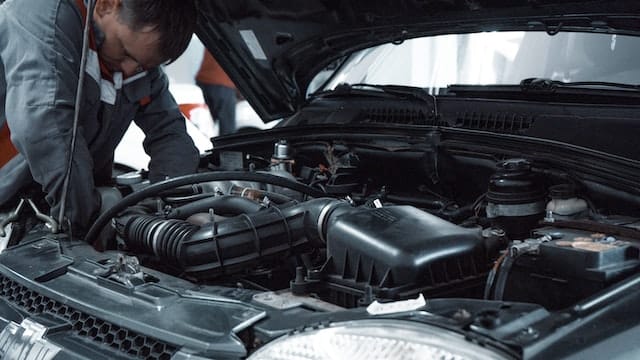
As the temperature rises and summer heatwaves approach, a well-functioning car air conditioning (A/C) system becomes increasingly essential for a comfortable driving experience. Regular A/C maintenance not only ensures optimal cooling performance but also extends the life of your system and helps prevent costly repairs.
Here are some tips to help you maintain your car A/C system and ensure it stays in optimal condition:
Use the A/C system regularly
Using the A/C system regularly can help prevent it from seizing up or developing leaks.
Check the A/C system regularly
Check the A/C system regularly for any visible signs of damage or leaks, and have any issues repaired promptly.
Inspect and clean air vents
Keep air vents free of debris, dust, or any obstructions that could restrict airflow and reduce cooling performance. Use a brush or vacuum cleaner to clean the vents periodically.
Ensure proper airflow
Check the air intake system for any obstructions that could affect your A/C’s performance. This includes inspecting and cleaning the air intake vents and ducts as needed.
Monitor A/C performance
Pay attention to changes in your car’s A/C performance, such as reduced cooling efficiency or strange noises. Address any concerns promptly to prevent further issues.
Replace the cabin air filters
The cabin air filters help to remove contaminants from the air that enters the vehicle through the A/C system. It should be replaced regularly, as specified in the owner’s manual.
Check the A/C system’s refrigerant levels
The A/C system needs a certain level of refrigerant to operate properly. If the level is too low, it could cause the A/C system to perform poorly or not work at all. A mechanic can check the refrigerant levels and refill the system if necessary.
Have the A/C system serviced
It’s a good idea to have the A/C system serviced by a mechanic regularly to ensure that it’s in good working order. This can include checks for leaks, cleaning the system, and replacing worn parts as needed.
A/C system service costs

The cost of having a car A/C system serviced can vary depending on several factors, including your location, the make and model of your vehicle, and the specific services needed. On average, a basic car A/C service, which usually includes checking refrigerant levels and inspecting the system for leaks or damage, can cost between $100 and $150. However, this cost can increase if additional services, such as recharging the refrigerant, replacing the cabin air filter, or repairing or replacing A/C components, are required.
Keep in mind that prices can vary significantly between different repair shops and dealerships, so it’s a good idea to get multiple quotes to find the best deal. It’s also essential to consider the reputation and quality of service provided by the repair shop when making your decision.
A/C additional services costs
The costs of additional car A/C services can vary depending on factors like your location, the make and model of your vehicle, and the specific parts or services required. Here’s a general cost breakdown for some common A/C services:
Recharging the refrigerant
The cost of recharging the refrigerant typically ranges between $100 and $250. This cost includes the refrigerant itself and labor fees. The actual cost will depend on the type of refrigerant used and the amount needed.
Replacing the cabin air filter
The cost of replacing a cabin air filter can range from $20 to $70 for the filter itself, with labor fees adding another $30 to $60. Some vehicles have more easily accessible cabin air filters, which could lead to lower labor costs.
Repairing or replacing A/C components
The cost of repairing or replacing A/C components, such as the compressor, condenser, or evaporator, can vary significantly depending on the specific part and labor fees. For example:
- a. A/C compressor replacement: $500 to $1,000 or more, including parts and labor
- b. A/C condenser replacement: $400 to $900, including parts and labor
- c. A/C evaporator replacement: $600 to $1,200, including parts and labor
Please note that these costs are approximate and can vary depending on the repair shop, vehicle make and model, and local labor rates. It’s always a good idea to get multiple quotes from different repair shops to find the best price and service quality.
Car A/C maintenance checklist: why it matters

Maintaining the air conditioning (A/C) system in a car is important for a number of reasons:
Comfort
A functioning A/C system helps to keep the interior of the car cool and comfortable on hot days. This is especially important for long drives or if you have young children or pets in the car.
Safety
On hot days, driving without a functioning A/C system can be dangerous as it can lead to heat stroke or other heat-related illnesses.
Performance
A well-maintained A/C system can help to improve the overall performance of the car by reducing the load on the engine and improving fuel efficiency.
Longevity
Regular maintenance and repairs of the A/C system can help to extend the life of the system and avoid costly breakdowns or replacements in the future.
A/C maintenance checklist: avoiding any potential problems

It is generally recommended to have your air conditioning (A/C) system checked every year, or every 12,000 to 15,000 miles, whichever comes first. This is especially important if you live in an area with hot weather, as the A/C system is more likely to be used frequently and may need more frequent maintenance.
During a routine A/C check, a mechanic will inspect the system for any signs of wear or damage and check the levels of refrigerant. They may also test the system to ensure that it is functioning properly and cooling the air effectively.
If you notice any issues with your A/C system, such as reduced cooling, strange noises, or leaks, it’s a good idea to have it checked as soon as possible to avoid any further damage or costly repairs.
Car A/C maintenance checklist: what’s the optimal temperature?

The optimal temperature to set for your car’s air conditioning (A/C) system will depend on a number of factors, including the outside temperature, the humidity level, and your personal comfort preferences.
As a general rule, it’s a good idea to set the temperature of your A/C system a few degrees cooler than the outside temperature. This will help to keep the interior of the car comfortable and cool, without overloading the A/C system or using too much energy.
For example, if it’s 90 degrees Fahrenheit outside, setting the temperature of the A/C system to around 75 degrees Fahrenheit should be comfortable for most people. If the humidity is high, you may want to set the temperature a few degrees cooler to help reduce the humidity inside the car.
It’s also a good idea to keep the airflow setting on the “feet” or “floor” setting, as this will help to circulate the cooled air throughout the car more effectively.
Overall, the optimal temperature for your car’s A/C system will depend on your personal comfort preferences and the conditions outside. It’s a good idea to experiment with different settings to find the temperature that works best for you.
Car A/C maintenance checklist: new cars vs older cars

Air conditioning (A/C) systems in newer car models are generally more efficient than those in older cars for a number of reasons:
Improved technology
Newer A/C systems often use more advanced technology, such as variable speed compressors and improved refrigerants, which can help to improve the efficiency and performance of the system.
Enhanced design
Newer A/C systems are often designed with improved aerodynamics and other features that can help to reduce drag and improve fuel efficiency.
Better insulation
Newer cars are often better insulated, which can help to keep the interior of the car cooler and reduce the load on the A/C system.
Greater fuel efficiency
Newer cars are generally more fuel efficient than older models, which can help to reduce the overall energy consumption of the A/C system.
Overall, newer car models tend to have more efficient A/C systems due to improved technology, design, insulation, and fuel efficiency. However, a good car AC maintenance checklist can help to ensure that the A/C system in any car is functioning effectively and efficiently.
